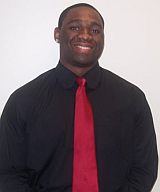 It might be possible to look at the newest arrivals at a company like San Francisco Opera as beginners of a sort, perched on the bottom rung on a most accomplished ladder. Yet the 29 young artists (24 singers and five coaches) who arrived on June 1 for 11 weeks of training have already studied and trained for years to earn the right to participate in the Merola Opera Program, one of the nation’s most prestigious programs for young artists. They have completed advanced degrees, have begun performing careers, and, most importantly, have had extensive one-on-one vocal training with master teachers. I sat down recently with seven of this year’s Merola artists to see how their summer was going and learn what this program is adding to their tool kit.
It might be possible to look at the newest arrivals at a company like San Francisco Opera as beginners of a sort, perched on the bottom rung on a most accomplished ladder. Yet the 29 young artists (24 singers and five coaches) who arrived on June 1 for 11 weeks of training have already studied and trained for years to earn the right to participate in the Merola Opera Program, one of the nation’s most prestigious programs for young artists. They have completed advanced degrees, have begun performing careers, and, most importantly, have had extensive one-on-one vocal training with master teachers. I sat down recently with seven of this year’s Merola artists to see how their summer was going and learn what this program is adding to their tool kit. I asked them whether they were comfortable leaving their teachers of many years to receive so much input from new teachers and coaches. The first to reply was 26-year-old bass-baritone Aleksey Bogdanov. “I don’t think it’s anyone’s intention here to completely break anyone down and start over,” he remarked. “The experience I’ve been getting is, everybody’s been using what you have and adding to it. Every coaching I go to, everybody just picks up where I left off at my last coaching, keeping me on the right path. Maybe they suggest ideas or ways of doing certain things differently. But it’s a positive process. Everybody is working together to add, as opposed to change.”
Maya Lahyani is a 27-year-old mezzo-soprano from Israel who has spent the past six years at Mannes College in New York as a student of Ruth Falcon. She remarked: “Everybody [here] realizes that you’re coming with a lot of tools. They’re all very careful. The people I’ve worked with always ask: ‘Is that different than what you’ve been doing? Is that something you’ve heard before? What does your teacher think about it?’ And then there’s a dialogue.”
Eleazar Rodrìguez, a 24-year-old tenor from Mexico, agreed. “I’m lucky because my voice teacher is teaching in Merola.” Rodrìguez is a student of César Ulloa, who is also on the faculty of San Francisco Conservatory, where Rodrìguez is completing his bachelor’s degree. When asked what he has learned about the opera business in the program, he responded, “One thing that you notice is that you have to be very friendly with everyone. There is no such thing as backstabbing or anything. This group is very nice. There’s no such thing as being competitive. I think it’s very healthy and the teachers here really encourage that.”
Bogdanov contrasted this with graduate schools. “There’s a lot of insecurity in schools, in programs, in competitions. In a place that’s such a high-quality place as San Francisco Opera, everyone is very talented and everyone is working together. Not only is there no reason to compete, there’s no real opportunity to compete.”
Lahyani called it challenging and inspiring. “When you’re in a group of very talented singers, you want to do everything to do your best, to contribute as much as you can to the mutual effort.”
Bogdanov agreed: “Being in school, you’re really working for yourself. Here, we’re working for the company. We’re working for San Francisco Opera.” Added Lahyani, “Also, they treat us like professionals here.”
Building a Vivid Character
Do these young professionals experience artistic breakthrough moments while working here?
Lahyani and Rodrìguez mentioned acting teacher Chuck Hudson, and others agreed. Rodrìguez, for one, came in with set ideas of how to sing each of his arias and to interpret the characters. He reported that Hudson “took a hammer and smashed [them]” and said, “Now, let’s build them together.” “We sometimes get so used to seeing a character one way and think, ‘That’s the way it works for me, and I’m not going to change it.’ But then [Hudson] starts asking questions like why? when? how? It helped me so much to let go of things that weren’t helpful anymore for the characters I was singing. Also, the stagings for L’Amico Fritz with Nic Muni have been amazing.”
Bogdanov concurred. “Most directors like to go through a whole show and rough-block everything [set out the stage movement], and then when you go back you almost reblock every scene. What Nic does is, he goes through every part, very specifically, every intention, every part that’s not sung. ...”
Added Rodrìguez: “And he has us do it again and again.”
Bogdanov went on to say, “Everything is filled in, and by the time we’re done staging the whole thing, tonight [July 3] I feel like I could run the whole show tomorrow and remember everything.”
Lahyani said, “Nic has been different from every other director I’ve worked with. I’ve never been asked so many questions about the character and the character’s background. I feel with Nic that he doesn’t really care that we’re opera singers. He wants fine acting.”
Drilling Down
Some Merola singers also reported getting to a deeper level musically and vocally. Michael Sumuel, a 24-year-old baritone from Odessa, Texas, said that he has been challenged to bring in his own ideas. “It’s very easy to go into a lesson or a coaching and take notes about what the teacher wants you to do, but at some point you have to be an individual artist and bring your own take on what the composer has written and express it in that way.”Over the course of the summer, the Merola artists participate in master classes with guest artists. Suzanne Hendrix, a 30-year-old contralto from Charles City, Iowa, spoke of her recent experience with soprano Jane Eaglen. “I worked with her and had been around her the week beforehand, which was nice. So I had a rapport with her, which you don’t always get in a master class. I sang ‘Weiche, Wotan’ [from Das Rheingold]. Of course, she’s famous for Wagnerian work, and she focused on how you carry more sound with less effort. With me, it had a lot to do with vowels and lip position.”

Sumuel remembered bass Eric Owens making similar points. “There were two basses who performed bel canto arias, and [Owens] talked about lining up the vowels along the same plane without overexaggerating or creating too much space, so that it makes one fluid line. When he would demonstrate and the students would find it for their own voices, it was really something special.” (For more on Eric Owens, read the SFCV interview.)
Young singers are every bit as awed by being elbow-to-elbow with opera celebrities as you would be. Yohan Yi, a 31-year-old bass from South Korea, blushed as he recalled running into soprano Anna Netrebko. “She spoke to me! It was so exciting.” And Rodrìguez admitted to being initially starstruck by Adler Fellow Heidi Melton, and being nervous on first meeting her.
You can see that these singers are seeing the bridge between these superstars and themselves. Hendrix said, “One of the guys I did my undergrad [work] with is currently an Adler [Fellow]. To see him onstage at San Francisco Opera is a little overwhelming.”
Lahyani and Rodrìguez were in Israel in the same program with a member of the Merolini (as former Merola artists are called) and a current Adler Fellow, David Lomelí. Lahyani recalled, “When he made his debut [as Alfredo] in La traviata, we were so excited. We were holding hands before the high notes and screaming for him. ‘That’s our friend!’”
Bogdanov explained, “When you’re really young, starting out, the Adler Fellows, or professional singers — they’re in this celebrity cloud, over there. And then one day as you approach having a chance to be a working professional musician, you realize that these people are genius musicians, celebrities in their own right, but they’re human.”
World-Class Teachers
A summer at Merola is an amazing opportunity to acquire everything that might help you to travel over that bridge. The singers receive classes in relevant subjects by a world-class faculty led by Sheri Greenawald, ranging from coaching on languages to the essentials of stage makeup. Most valuable, perhaps, are connections made with people working at high levels in the field. When summer ends and some of these singers become freelance artists on the road, they may find things becoming more complicated. The general feeling when this topic was discussed was one of gratitude and an awareness that what they are experiencing in the Merola Program is a rare thing. Rodrìguez, for one, will return to school to finish his degree, and said he will try to keep the summer’s momentum going. Hendrix, who has a small role coming up and many auditions scheduled, said, “You just have to take it as it comes.”
are experiencing in the Merola Program is a rare thing. Rodrìguez, for one, will return to school to finish his degree, and said he will try to keep the summer’s momentum going. Hendrix, who has a small role coming up and many auditions scheduled, said, “You just have to take it as it comes.” As for Yi, he claimed to be “really enjoying the free opera tickets, and singing on a real main stage. It’s a blessing, and that’s enough.”
“Everybody’s goal is just to get rehired,” Bogdanov remarked. “There’s a big picture and a small picture. If you think, when you’re 15 years old, ‘My only goal is to sing at the Met,’ you have to think about all the little steps. You’re only as great as your last performance. You have to sing well. Your goal is to be a great colleague, to be a professional, and to get rehired! You can be a professional for three years. You can be rich for three years but that doesn’t mean that you’re going to have a career for 20 years.” He said that since he moved here from Ukraine at age 9 he has been driving past the War Memorial Opera House and “wanting to go in that building. And not through the front door. I’ve been eyeing the stage door!”
Lahyani said that she felt so safe and homey at Mannes College, where everyone knew her, that she feared leaving. “So many singers leave school and nothing happens. So many things happened right after for me, and things keep coming up, so I’m very happy. The main goal is to keep singing well, develop, learn, and constantly challenge myself. The product of that will be having the career. But that’s only the product of the work of perfecting your craft. Of making something special, and enjoying that.”
When asked what the greatest hardship has been for them, the subject of being away from family was first on the list. Rodrìguez spoke of feeling sad whenever he hangs up the phone with family celebrating someone’s birthday afar in Mexico.
Yet it is clear that being in the Merola Opera Program was a long-held dream of many of the seven young artists, and the sadness or homesickness in the room was tempered by the excitement these singers obviously felt at the prospect of life as an opera singer. Despite the long distances that these singers have traveled, and the newness of their surroundings and colleagues, the singers seemed happy and comfortable as Merola artists. For these big voices and big talents, coming to San Francisco Opera seems to have made them feel, artistically, truly at home.

